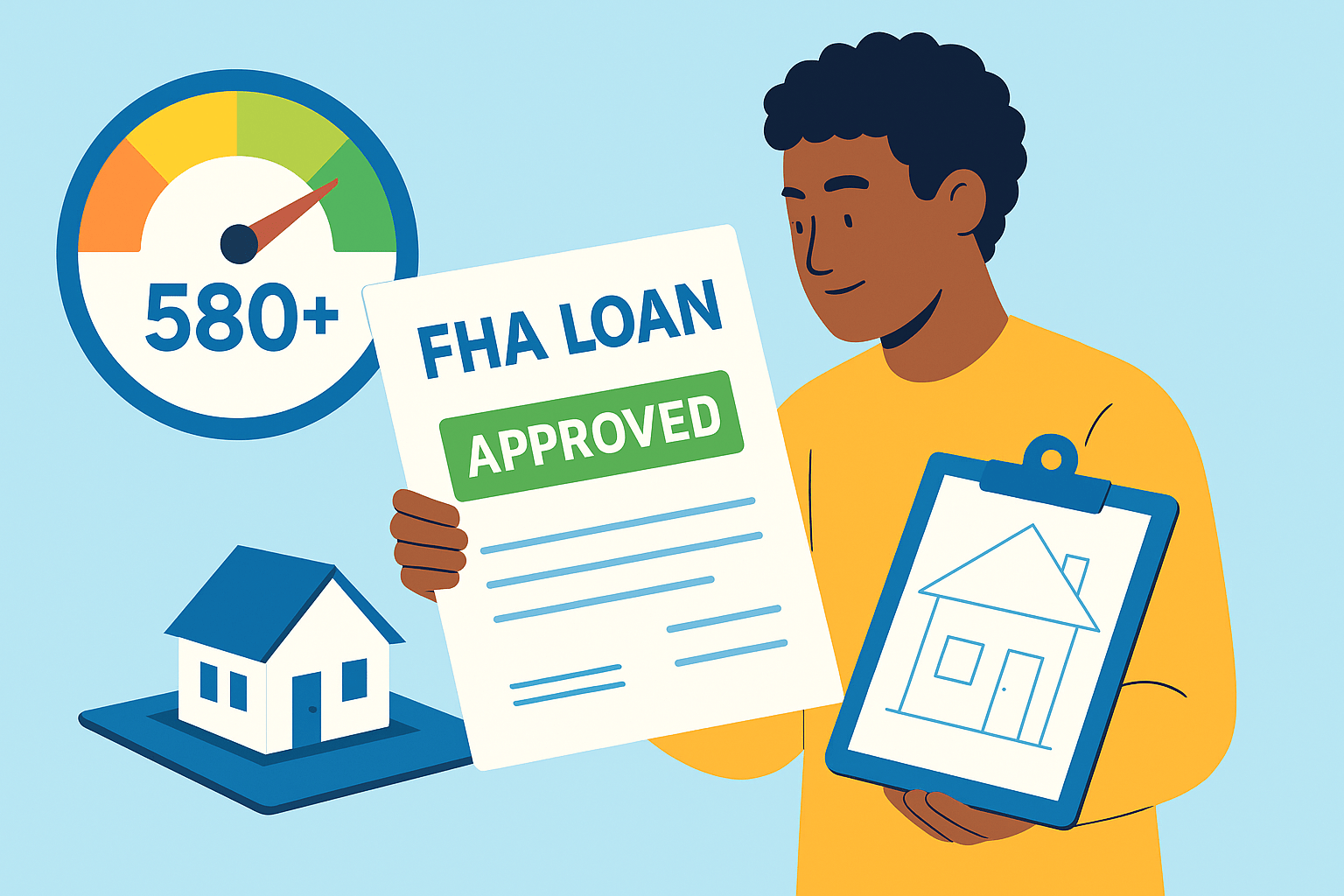Mortgage Credit Certificate First-Time Homebuyer Assistance Programs
Mortgage Credit Certificate: Indiana’s Hidden Home-Buyer Advantage
Dreaming of a front porch in Fort Wayne or a downtown condo in Indy but worried about monthly costs? The Mortgage Credit Certificate (MCC) from the Indiana Housing and Community Development Authority (IHCDA) may be the secret weapon you’ve never heard of. By turning a slice of your mortgage interest into a dollar-for-dollar federal tax credit, this program can shave thousands off your tax bill—year after year.
Below you’ll discover how the Indiana MCC works, who qualifies, and why even savvy buyers overlook this mortgage tax credit. We’ll crunch real numbers, dispel myths, and answer the Internet’s most-asked questions so you can decide whether claiming a Mortgage Credit Certificate should be step one in your home-buying plan.
What Is a Mortgage Credit Certificate?
An MCC is a certificate issued by an approved state or local housing agency—in this case, the IHCDA—allowing eligible buyers to claim a federal tax credit of up to 20–25% of the mortgage interest they pay each year, <$2,000 annual cap>. It doesn’t replace your regular mortgage interest deduction; it stacks on top. Think of the MCC as a coupon you hand the IRS every April saying, “Credit me back a chunk of what I already paid.”
The program was created by Congress in the mid-1980s but operates quietly in the background of most real estate transactions. In Indiana, lenders partner with the state, file some extra paperwork before closing, and—voilà—your credit is locked in for the life of the loan (as long as the home remains your primary residence).
How Does the Indiana MCC Program Work?
- Reserve the certificate. Your lender submits Form MCC-1 to IHCDA before underwriting wraps up.
- Close with confidence. The MCC is recorded alongside your mortgage. One-time fee: $400 (at or before closing).
- Claim the credit yearly. Each spring, you file IRS Form 8396, subtracting the credit from taxes owed.
- Carryover safety net. Can’t use the full credit in year one? Roll the balance forward for up to three additional years.
Because the MCC program effectively lowers your net housing cost, lenders often factor it into qualifying ratios. Translation: You may afford a slightly higher purchase price without busting your budget.
Who Qualifies for an MCC in Indiana?
IHCDA sets a few guardrails. You must:
- Be a first-time home buyer (no ownership in past three years) or purchase in a designated “target” county where repeat buyers qualify.
- Meet household income limits—roughly $95,560 (1–2 persons) to $111,440 (3+ persons) in most counties, higher in targets.
- Stay under purchase-price caps: $481,176 (non-target) and $588,104 (target) as of 2024.
- Use the property as your principal residence within 60 days of closing.
Income and price thresholds adjust annually. Double-check the latest chart on the state’s site before you shop.
How Much Can You Save? Crunching the Numbers
Meet Samantha and José, newly engaged teachers in Lafayette. They buy a $240,000 home with a 30-year, 6.50% fixed-rate mortgage. First-year interest: roughly $15,400.
- MCC credit rate: 25%
- Eligible credit: 25% × $15,400 = $3,850
- IRS cap: $2,000
- Net tax credit claimed: $2,000 every year until interest drops below $8,000 (typically year 6–7)
- 10-year tax savings: ≈ $16,000
If they were on the edge of qualifying for their loan, this credit could have boosted their debt-to-income ratio by 2%—just enough to get a “yes” from underwriting.
How does a Mortgage Credit Certificate actually reduce my tax bill?
This is the number-one “People Also Ask” query on Google. Remember: a tax deduction lowers taxable income, while a tax credit lowers taxes owed dollar for dollar. Suppose you owe Uncle Sam $3,500. Using the MCC example above, you knock off $2,000 and pay only $1,500. If withholdings already covered the $3,500, you now get a $2,000 refund. Simple math; powerful impact.
The credit is non-refundable. It can’t push your tax liability below zero, but unused portions roll forward. Around 22% of Hoosier MCC holders carried over credit in 2022, according to internal IHCDA data shared at a fall lenders’ symposium.
Can I combine an MCC with an FHA, VA, or USDA loan in Indiana?
Absolutely. The state’s MCC program is loan-agnostic. Whether you’re putting 3.5% down with FHA, going zero-down with USDA, or leveraging VA benefits, the Mortgage Credit Certificate can layer on top. Conventional loans work too.
Two caveats:
- Your lender must be approved by IHCDA. Ask early in the pre-approval stage.
- If you refinance later, the MCC terminates unless you request a re-issuance—possible only once and within 12 months of the new loan.
Is the Mortgage Credit Certificate worth it for first-time buyers?
In most scenarios, yes. The one-time fee is under $500, yet the average Indiana MCC holder pockets more than $1,700 per year for the first five years. That’s a 300%+ annual return on the upfront cost.
When might it not pencil out? If you anticipate moving or refinancing within two years, interest may not be high enough to maximize the credit. Also, high-income households who owe minimal federal tax after other deductions could hit the non-refundable ceiling. A quick conversation with a tax pro solves the mystery.
Little-Known Benefits and Pitfalls
Beyond raw savings, an MCC can:
- Boost loan approval odds. Some automated underwriting systems factor the annual credit as extra income.
- Enhance seller negotiations. Explain the credit’s buying-power to sellers wary of concessions.
- Survive rate hikes. The credit percentage is fixed even if rates climb; you’re hedged against interest spikes.
Yet, pitfalls exist:
- Federal recapture tax. Sell within nine years at a profit, and you may owe a recapture—up to 6.25% of the original loan. IHCDA offers a reimbursement option, but paperwork is on you.
- Paper chase. Lose your certificate or skip filing Form 8396, and the IRS won’t remind you.
Only about 1 in 1,400 U.S. taxpayers claimed an MCC in 2021, according to aggregated IRS tables—proof the program remains under the radar.
Step-by-Step: Applying for the Indiana MCC
- Contact an IHCDA-approved lender.
- Complete the MCC reservation form before loan underwriting is complete.
- Provide household income documentation for all occupants over 18.
- Pay the reservation ($100) and issuance ($300) fees—as allowed, these can be seller-paid.
- Receive your Mortgage Credit Certificate at closing and file it for safekeeping.
Frequently Asked Questions
- Does the MCC replace my mortgage interest deduction?
- No. You still deduct all interest; the credit is taken first, and the remaining interest is deductible.
- Can I get an MCC after I close?
- Generally no. The application must be completed before closing because issuance hinges on the original mortgage terms.
- What happens if I refinance?
- You have 12 months to request a one-time re-issuance. Miss that window and the credit terminates.
- Is there an MCC for investment properties?
- No. The home must remain your principal residence to retain eligibility.
- Do I have to repay the credit when I sell?
- Only if you sell within nine years, earn a profit, and your income rose above certain thresholds. Even then, recapture is capped and sometimes reimbursed by IHCDA.
Your Next Move
Indiana’s Mortgage Credit Certificate is not a loophole—it’s a legislated benefit hiding in plain sight. If you’re plotting your first purchase in the Hoosier State, ask your lender about reserving an MCC before the appraisal is ordered. A 15-minute conversation today could translate into thousands back in your wallet tomorrow.
Ready to unlock your tax credit? Reach out to our IHCDA-certified loan advisors at home@indianafirsthome.com or call (317) 555-HOME. Let’s make your first set of house keys lighter on your budget and brighter for your future.
Explore More Blog Posts
Checkout more similar posts those will help you to choose better property.












 Profile
Profile Password
Password Saved Properties
Saved Properties Sign Out
Sign Out
 +0.01
+0.01
 -0.15
-0.15

